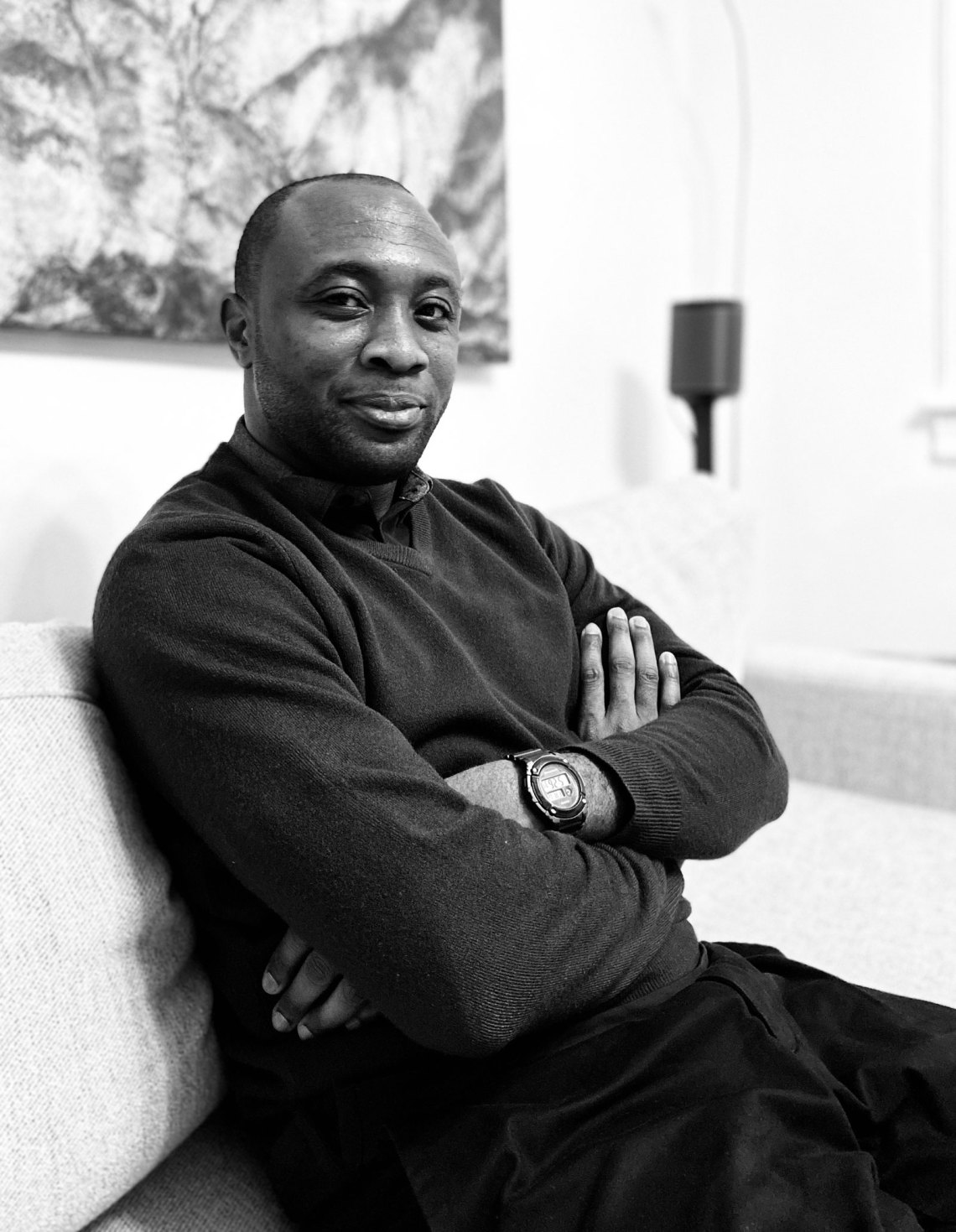On October 3, 2020, we published “Italy’s Colonial History in Africa Reframed” by Emmanuel Iduma, an essay about the Eritrean photographer Dawit L. Petros and the Ethiopian novelist Maaza Mengiste, and how their work responds to the history of Italy’s colonial presence in Africa. Iduma sees the two united by the idea that “history is an evolving proposition,” as he writes. From their creative engagement with official records of that history, including archival photographs, a truer account—more complex and more ethical—can emerge through art.
Iduma, who received an MFA from the Art Writing Program at the School of Visual Arts in New York City, where he then taught, has recently returned to Lagos. “I moved to alleviate an angst I’d felt for years,” he told me by email. “The idea that my work was to be dedicated to figuring out how I could address the Nigerian experience, writ large and small.” The pandemic has of course colored his first year back. “Much of my time has been spent indoors with my wife, Ayobami Adebayo, or with our family. I think there’s a sense in which I feel reprieved by the seclusion: my work spells are almost unbroken, and I have had time to ease more slowly into a city that otherwise demands frenetic participation.” He added, “I should say how fortunate I have been: I sheltered in place the year I felt ready to complete a book manuscript.”
The return home echoes a return to his family history, central to the book Iduma is writing about the aftermath of Nigeria’s Biafran War, a subject he also explored in his first essay for the NYR Daily. “After I began a novel, in which the main character incites a pro-Biafran uprising, I realized my protagonist was an avatar for my uncle, who was unaccounted for after the war ended. So I switched to narrative nonfiction,” he said. I Am Still with You, the working title of the book, is based on travels to towns in southeastern Nigeria. It’s a search for his uncle, but also an investigation of the war’s imprint on present-day Nigeria—the continuing pro-Biafran agitation and the nature of collective memory.
“What’s clear,” he told me, “is that the country is facing its own existential dilemmas—terrorism in the northeast, farmer–herdsmen clashes over pastureland in the north-central, pro-secessionist agitations in the southeast—all of which will be pronounced after the pandemic, when we enter a post-petrodollar world. How does my writing convey the particular ways we have been failed in the last sixty years? My work on the aftermath of the Biafran War is pitched to these urgencies.”
When I asked Iduma about the interplay between his writing, teaching, and editing—in 2009 he co-founded Saraba, a magazine for emerging African writers—he said that, to him, “the true task of editing is to ensure that no hierarchies are made between one form of writing and another.” His own writing often moves between genres. “I’ve always wanted my writing to be at once capacious in reach and tender at heart. The curricula I develop are equally organized around those ideas.”
Iduma, who trained as a lawyer but never practiced, looks back at this past life with humor. “Most of what I did in those six years of study was prove the point (to myself, mostly, but also to my friends and family) that I had the wits to train in a respectable profession,” he said. And though he “came to a crossroad and took the other turn,” he sees a parallel path: “For instance, I obsess about my intellectual lineage, which might be the same thing as working with precedents in a legal brief.”
Who does he count among that lineage? “My father, whom I miss terribly, wrote eleven Christian books. He was my first model of writerly discipline,” he said. “I met my wife, Ayobami, as a teenager. She’s a novelist, and I cannot remember a time when we weren’t discussing what kind of writers we wanted to become. Her understanding of the possibilities of fiction is unmatched by anyone I know, and I am deeply grateful for her daily companionship.
“I’m in regular correspondence with Amitava Kumar and Teju Cole,” he went on, “in an unbroken link of mentorship that extends to Michael Ondaatje and John Berger.” He returns frequently to the novels of Anne Michaels and the criticism of his former teacher David Levi Strauss.
In his most recent book, A Stranger’s Pose (2018), these influences are clearly present as Iduma wanders between African cities, including Dakar and Douala, Bamako and Benin, Khartoum and Casablanca, his vignettes mingling memoir, travelogue, and storytelling to create a reflective and mournful meditation on belonging. The text is also interspersed with photographs, both others’ and Iduma’s own. In fact, a striking photograph by Petros of a man holding a mirror over his face, from a series Iduma mentions in his recent Daily essay, illustrates the book’s cover.
Advertisement
Reading Iduma on photography and colonialism, I’m struck that America’s recent confrontations with its own violent history, and present, have been notably visual—from the videos of police murder that ignite protest to attendant conversations about spectacle and the ethics of photography, from symbolic monument toppling to efforts to memorialize slavery, recover archives, and more. I asked Iduma what he made of this.
“The spark of documentary photography lies in the tension between what was pictured and what is imagined in retrospect,” he said. “I am a firm believer in the agency that can be claimed from the process of writing about historical photographs, especially by those whose forebears were pictured as less than fully human.
“I want photographs to bring me closer to storytelling, to help me understand tragedy—how one thing leads to another, and how an event might be conterminous with its aftermath.”


